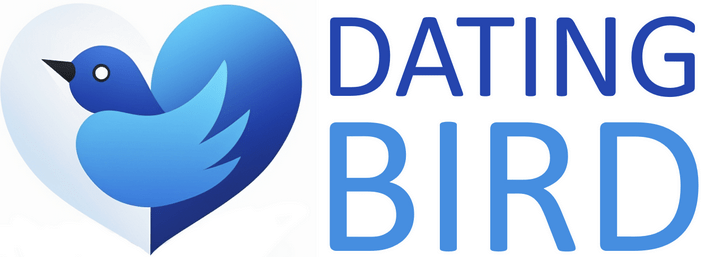Dating apps are digital platforms, typically mobile applications, that provide a modern way for individuals to meet, connect, and potentially form romantic or sexual relationships. These apps, popular in Canada's online dating scene, use various algorithms to match users based on their profiles.


A detailed explanation of Dating Apps:
Dating apps are an integral part of the online dating landscape, serving as a platform for individuals to connect based on shared interests, geographical location, or other specific criteria. These applications, available on various devices, primarily smartphones, have fundamentally changed how people meet and interact in the digital age. The primary purpose of dating apps is to facilitate the process of finding a potential partner, whether for a casual encounter or a long-term relationship. These apps provide a space where users can create personal profiles, browse through other users' profiles, and initiate conversations.
"Dating apps have revolutionized the dating scene by providing a platform for individuals to connect based on shared interests, geographical location, or other specific criteria."
The functionality of dating apps varies, with some offering a swipe feature for quick decision making, while others provide more detailed profiles for a thorough evaluation. Regardless of their specific features, all dating apps aim to provide a convenient and efficient way for individuals to explore potential romantic connections.
What are good examples of Dating Apps?
In the realm of online dating, numerous dating apps have gained prominence due to their unique features and user-friendly interfaces. Tinder, a pioneer in the dating app industry, popularized the "swipe right" or "swipe left" mechanism, allowing users to make swift decisions based on first impressions. Bumble, another leading dating app, empowers women by giving them the first move, disrupting traditional dating norms. OkCupid, meanwhile, focuses on detailed profiles and compatibility questions to foster deeper connections. Grindr and Her cater specifically to the LGBTQ+ community, providing a safe and inclusive platform for this often underrepresented group in online dating.
"The variety of dating apps available today reflects the diverse needs and preferences of the online dating population."
Each of these apps has carved out a distinct niche within the online dating landscape, offering different experiences tailored to the specific needs and preferences of their users. These examples demonstrate the versatility and adaptability of dating apps in today's digital age.
What really matters with Dating Apps? Or not?
When considering the effectiveness and utility of dating apps, it is essential to understand the key factors that contribute to their success. First, the design and user interface play a significant role. The application must be intuitive and user-friendly, enabling users to navigate the platform with ease. Secondly, the algorithm used for matching users is crucial. The sophistication and accuracy of the algorithm determine the potential for compatible matches. Thirdly, security and privacy measures are vital. Users must feel safe and assured that their personal information is well-protected. Lastly, availability and accessibility across different devices and platforms can increase the reach and popularity of the app.
"The success of dating apps hinges on their design, matching algorithm, security measures, and accessibility."
To summarise:
- Design and User Interface
- Matching Algorithm
- Security and Privacy Measures
- Availability and Accessibility
These factors collectively contribute to the overall experience of users on dating apps, influencing their preference and usage.
Why are Dating Apps so important? Or not?
Dating apps have become an integral part of the online-dating landscape, serving as a crucial conduit for individuals seeking romantic or casual relationships. Their significance is underscored by the way they have revolutionized the dating scene, making it more accessible, efficient, and diverse. Dating apps provide a platform where people of all backgrounds and preferences can connect, interact, and potentially form relationships. This has resulted in a democratization of dating, where geographical, social, or cultural barriers are minimized.
"Dating apps have democratized the dating landscape, making it more accessible, efficient, and diverse."
Moreover, these apps have introduced a level of convenience and flexibility that was previously absent in traditional dating methods. Users can browse profiles, communicate, and even set up dates at their own pace, and in their own time. They also offer a degree of control, allowing users to filter potential matches based on a range of criteria, thereby increasing the likelihood of finding a compatible partner. In essence, the rise of dating apps has transformed the way people date, making it a vital aspect of modern dating culture.
What are the challenges with Dating Apps?
While dating apps have revolutionized the way people meet and interact, they also present a set of unique challenges. For one, the sheer volume of potential matches can be overwhelming, leading to a phenomenon known as the 'paradox of choice'. The vast array of options might lead to indecision or dissatisfaction, as users may constantly feel that there could be a better match just a swipe away.
Moreover, the anonymity and distance provided by these platforms can sometimes foster a lack of accountability, leading to inappropriate behavior or even deceptive practices like 'catfishing'. This refers to the act of luring someone into a relationship by means of a fictional online persona.
Lastly, the algorithmic nature of dating apps can lead to concerns about data privacy and security. Users' personal information, preferences, and communications are all stored and processed, raising questions about how this data is used and protected.
"The paradox of choice, lack of accountability, and concerns about data privacy present significant challenges in the world of dating apps."
Finally, the ephemeral nature of online interactions might not always translate well to real-life connections, leading to potential disappointments or mismatches in expectations.
- Paradox of choice
- Lack of accountability
- Data privacy concerns
- Discrepancy between online and offline interactions
What is the difference between Dating Apps and Social Media Apps?
Dating apps and social media apps, while both platforms for digital interaction, serve distinct purposes and are designed with different user experiences in mind. Dating apps, such as Tinder or Bumble, are specifically designed to facilitate romantic or sexual connections between users. They typically include features tailored to this purpose, such as advanced matching algorithms and the ability to 'swipe' through potential matches. In contrast, social media apps like Facebook or Instagram are primarily aimed at maintaining existing social connections and creating new ones based on shared interests, rather than romantic compatibility. While it's possible to meet potential partners through social media, it's not the primary function of these platforms. Therefore, the key difference lies in the intent of use - dating apps are for finding romantic partners, while social media apps are for broader social networking.
FAQ
Question: What are Dating Apps?
Question: Can you give me some examples of Dating Apps?
Question: What makes a good Dating App?
Question: Why are Dating Apps important in the world of online dating?
Question: What are some challenges associated with Dating Apps?
Question: How are Dating Apps different from Social Media Apps?
Question: Are Dating Apps suitable for finding long-term relationships?
Related articles
Articles with related questions
Written by:
 Sophia
Sophia focuses on how-to articles.
Since she studied psychology, Sophia has been concerned with the best criteria for matching people in online dating so that a relationship lasts for a really long time. In their opinion, an important factor is sincerity when filling out the profiles. This is the only way to ensure that you are not rejected at the first meeting.
Sophia
Sophia focuses on how-to articles.
Since she studied psychology, Sophia has been concerned with the best criteria for matching people in online dating so that a relationship lasts for a really long time. In their opinion, an important factor is sincerity when filling out the profiles. This is the only way to ensure that you are not rejected at the first meeting.
